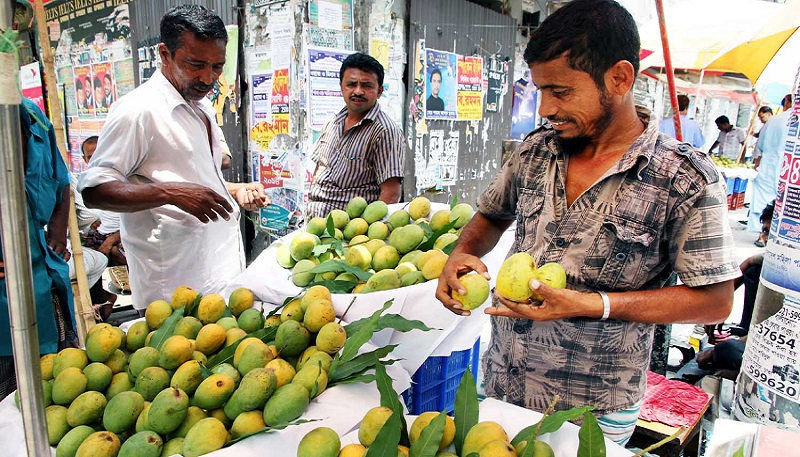
“We even cannot properly afford meals two times a day and are somehow surviving with our children. In such a condition, the budget has no meaning to us,” said Md Shahin, a rickshaw puller in the capital’s Rampura Bazar, while asked about his reaction to the newly announced national budget for the fiscal year 2020-21 (FY21).
Fifty-year-old Shahin has been pulling a rickshaw to earn a living in Dhaka city for eight years now. He lives with his wife and three children at a slum in Badda. He seemed quite indifferent while talking to this correspondent about the new budget.
There are many other working-class people like Shahin having no interest in the budget no matter how bigger its size is.
Habib, a 35-year-old van puller at Mohanagar Project in West Rampura, said: “I don’t understand what the budget is. But I know that prices of everything increase when a budget is announced, dealing a further blow to us, the poor.”
“Has the budget reduced the prices of rice and pulses? If the prices are decreased, then it’s good. Otherwise, it’s a bad budget,” he said further.
When it comes to the national budget, the thoughts of these people in the lower economic strata circle around the prices of daily commodities like rice, pulses, oil and salt. They heave a sigh of relief if the prices of essentials fall a bit.
“What is the budget? It does not make sense to us. Budget is the matter of the government,” said Kawsar Ahmed, a seasonal fruit vendor at Modhubagh in the capital.
A vegetable seller named Rafiq said the prices of daily commodities increase each year following the announcement of the national budget.

Md Alam, an engineer at a private company, said he has heard that online shopping is going to get costlier as the value-added tax (VAT) imposed on it will further go up in the proposed budget.
He said that he had relied on different online platforms to buy the necessary items during the lockdown period.
“Usually, we have to pay higher prices for buying things online. Now if the prices further go up due to the increase in VAT, it will be very unfortunate for middle-class people like us,” he said.
Alam added that he would now be compelled to buy things offline visiting markets while compromising safety.
Russel, the driver of a CNG-run three-wheeler, said the budget is nothing but a blame game between the ruling Awami League and BNP.
“Awami League says the budget has been a great one whereas BNP says they haven’t accepted the budget,” he said, adding that there was no good news in the budget for people like him.
One Tahmid, a class XI student, said he has heard that the finance minister had talked about allocating money to recover the loss caused by the general holidays due to the coronavirus – an initiative he liked the most.

Expressing anger over the increase in prices of cigarettes and tobacco items in the budget, a private company employee Morshed said it has been very common that cigarette prices increase each year during the budget time.
Preferring to be unnamed, a private bank official expressed frustration over the hike in registration fees for personal vehicles in the new budget.
“I have a plan to buy a vehicle once the virus is gone,” he said, adding that he was now feeling low seeing the increase in the registration fees.
Finance Minister AHM Mustafa Kamal on Thursday (June 11) proposed a Tk 5,68,000 crore national budget for the 2020-21 fiscal year at the parliament amid the Covid-19 pandemic.
aa/sik/at